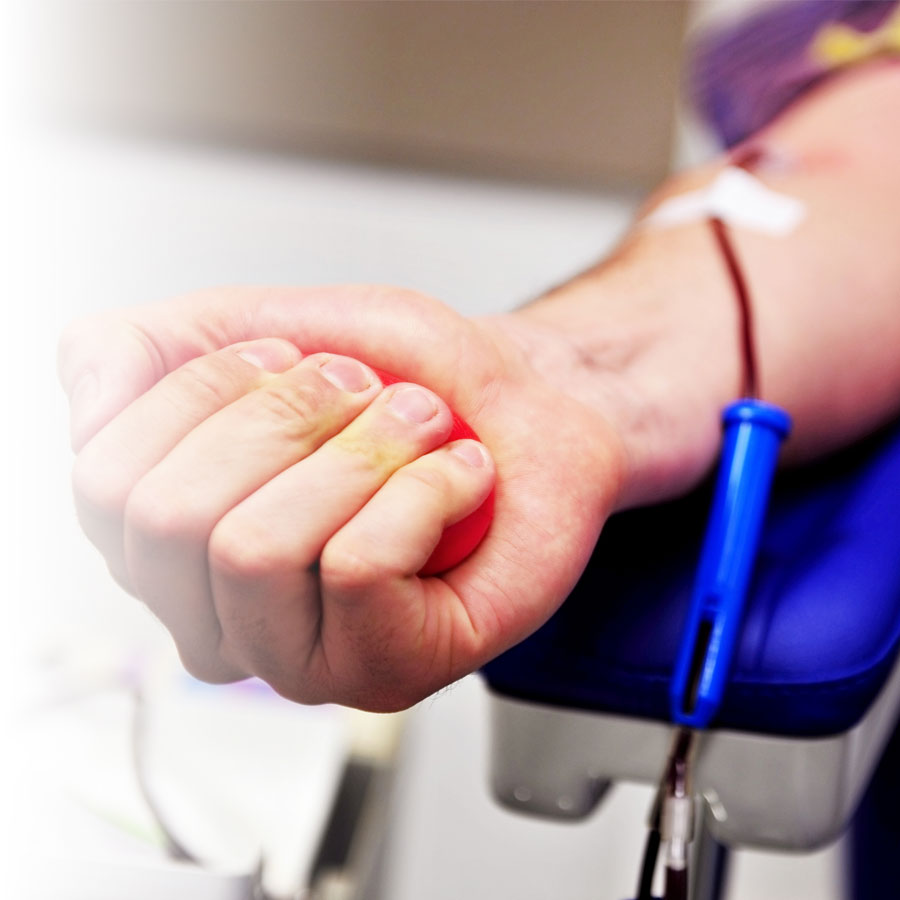Each blood donation is important and saves lives. You can also make a difference; just dare to overcome your reticence.
Blood: a fluid essential to life
Blood is a biological fluid essential to life, made up of several elements and substances, including water, red blood cells, white blood cells, and platelets. It performs a number of functions, including:
- carry oxygen to muscles and organs
- deliver nutrients
- eliminate waste from organs
- defend the body from bacteria and foreign substances, and
- keep the body hydrated
Unfortunately, researchers have not yet succeeded in creating artificial blood that could completely replace the blood of an injured or sick person, hence the importance of blood donation.
Blood types
Blood also has specificities that make blood transfusions a little more complicated. There are four blood types: O, A, B and AB. The rhesus (Rh) factor determines whether the blood type is positive (+) or negative (-). The O+ blood type is found in the largest proportion of the population (39%), while the AB- blood type is found in only 0.5% of people.
Before transfusing blood to a person, it is necessary to ensure that the donor's blood is compatible with the recipient's blood. Otherwise, an immune reaction could occur: the transfused blood may be perceived as a foreign substance, which could lead to rejection and a deterioration of the health of the person receiving the transfusion.
The diversity of blood types makes it important to use donors of all groups in order to facilitate blood transfusions and to have a sufficient blood supply to meet all hospital demands.
Blood donation
When blood is donated, care is provided by healthcare professionals (most often nurses) and volunteers throughout the process.
The amount of blood drawn is only one-twelfth of the total amount of blood flowing through your body. This means your body will have no trouble regenerating the blood that was donated. In less than 24 hours, the plasma is completely replenished, while after about 8 weeks, all the blood components are renewed. Every eight weeks, a person can donate blood without harming their health.
The contraindications to donating blood
Donating blood, if not done under optimal conditions, can carry some risks, including the transmission of certain diseases (e.g., HIV, hepatitis B or C infection). The Héma-Québec team works to protect both donors and recipients by ensuring that the blood collected is free of any diseases and is safe for transfusion. If a condition deemed risky is detected, blood donation will not be permitted. Additionally, a questionnaire is done on site and several laboratory tests are performed on each blood bag collected to eliminate any risk of contamination. You can visit Héma-Québec's website to learn more, and the nursing staff on site will be able to provide you with information.
Here are a few conditions to be able to give blood:
- being at least 18 years old
- not having used intravenous drugs
- having given birth more than six months ago
- having not had sex with a man for at least three months if you are a man
- having not had a tattoo or a piercing for at least three months
- single-use needles for electrolysis or acupuncture (or having had the last treatment for more than 6 months).
Save lives
A person may need a blood transfusion for several reasons, such as cancer, a car accident or another illness. In Quebec, more than 1,000 transfusions must be performed every day to save lives. This shows that donating blood is valuable and that it is important that hundreds of people decide to become donors.
You want more arguments? Here are some interesting facts:
- One donation can save up to four lives!
- A transfusion must be done every 80 seconds.
- You or a family member may need a transfusion one day.
- Some Globule blood donor centres are now open every day to provide greater accessibility.
Giving blood is one of the greatest gifts. If you've never donated blood before, find out when the next blood drive will be in your city!
For additional information about blood donations, consult the Héma-Québec website at: https://www.hema-quebec.qc.ca/index.en.html.

